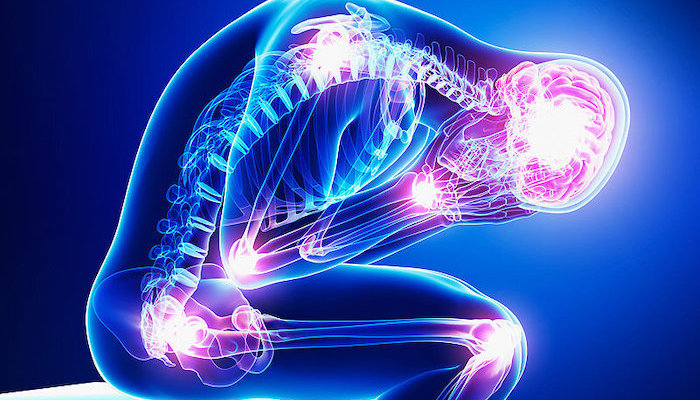
Your joints go through natural changes as you get older, but you should never give in to joint pain as an expected part of aging. Instead, you can take steps to maintain resilience, strength, and optimal joint health.
Preventing joint pain, or relieving pain if problems have already appeared, primarily involves lifestyle changes supported by medical care.
Let’s talk about normal age-related joint changes and then give you the top three tips for preventing joint pain.
Aging And Your Joints
There’s no denying that your joints change over the years. Fluids needed to lubricate the joint diminish, and cartilage protecting the bones breaks down. Ligaments tend to stiffen, while the muscles you need to support and stabilize the joint weaken.
These changes can lead to varying degrees of inflammation, pain, and stiffness. For many people, this age-related degeneration turns into osteoarthritis, the most common cause of joint pain.
It sounds like you’re destined for joint pain, doesn’t it? That isn’t the way it has to play out. You can make changes that promote healthy joints and go a long way toward preventing degenerative changes.
The earlier you start, the better, but it’s never too late to reap the benefits of lifestyle changes. We’re here to help with a multi-disciplinary approach that draws from specialized areas such as physical therapy, interventional pain medicine, regenerative medicine, and medication management.
Keep Moving
Exercise has the amazing ability to slow down age-related changes in your joints. Staying active makes your joints more resistant to degeneration. With exercise, muscles get stronger and cartilage gets thicker. Stretching helps the ligaments and joints stay flexible.
If you already have joint problems, exercise is the best way to alleviate the pain, maintain optimum mobility, and reduce inflammation. As a result, exercise puts a dent in progressive joint deterioration.
We know that it can be difficult to begin or maintain an exercise program if you already have joint pain. That’s why we offer a wide range of interventional procedures that significantly relieve the pain and get you back into action.
Maintain A Healthy Weight
Gaining weight is one of the biggest risk factors for joint pain. For every 10 pounds of extra weight you have, the force on your knee increases by 30-60 pounds with each step you take. As a result, the cartilage inside your weight-bearing joints breaks down more quickly, accelerating osteoarthritis.
Being overweight also leads to a boost in body-wide inflammation, including in your joints. This adds to your risk of problems because inflammation is directly responsible for joint pain.
The good news is that losing weight lowers your risk of joint pain and osteoarthritis in proportion to the number of pounds dropped. If degenerative changes have already occurred, losing weight substantially reduces your pain and may slow disease progression.
Choose Anti-Inflammatory Foods
The only way to lose weight and maintain a healthy weight is with a diet and exercise plan that works for you and your lifestyle.
If your only goal is weight loss, then the calories in your diet are the most important part of your plan. However, if you want to lose weight, stay healthy, and further lower your risk of joint pain, then you want to follow an anti-inflammatory diet.
The foods you choose can reduce or promote inflammation. As a general guideline, processed foods, red meat, alcohol, saturated fats, and sugar cause inflammation.
In addition to causing inflammation, saturated fats (think butter and animal fat) and refined sugar may also contribute to cartilage degeneration in your joints.
The foods that fight inflammation include fish, lean meat and poultry, healthy unsaturated fats, nuts, beans, fruits, and vegetables. You don’t need to follow a highly restrictive diet. You only need to be thoughtful about the foods you eat.
One of the biggest mistakes you can make is to ignore pain because you believe it’s just a normal part of aging. The sooner you get the appropriate treatment, the more likely you are to prevent chronic pain and joint problems.
Precision Pain Care and Rehabilitation has two convenient locations in Richmond Hill – Queens and New Hyde Park – Long Island. Call the Queens office at (718) 215-1888, or (516) 419-4480 for the Long Island office, to arrange an appointment with our Interventional Pain Management Specialist, Dr. Jeffrey Chacko.













